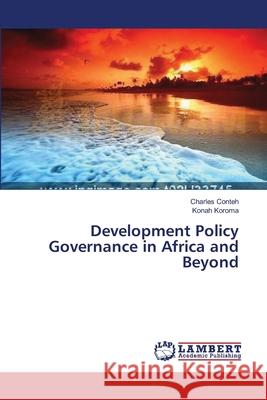Development Policy Governance in Africa and Beyond » książka
Development Policy Governance in Africa and Beyond
ISBN-13: 9783659429378 / Angielski / Miękka / 2014 / 236 str.
The book is premised on the assertion that institutions and processes of governance are fundamental to Africa's transformation in the twenty-first century. After decades of political independence and myriads of development experimentations in most of Africa, there are still 388 million people in extreme poverty and approximately 239 million chronically undernourished in the continent. The book provides a critical overview of the various approaches to development and the many fads of public sector reform in the developing world. The discussion also lays out an analytical framework drawn extensively from the literature on administrative and institutional capacity to advance what the authors refer to as strategic development management. In particular, the discussion proposes models of innovative participatory governance for leveraging developing countries' natural and human resource potentials for economic and social development. Using Sierra Leone, a post-confclit country, as an illustrative case study, the book examines the nature, challenges, and prospects of the institutions and processes of development policy governance in developing countries.
The book is premised on the assertion that institutions and processes of governance are fundamental to Africas transformation in the twenty-first century. After decades of political independence and myriads of development experimentations in most of Africa, there are still 388 million people in extreme poverty and approximately 239 million chronically undernourished in the continent. The book provides a critical overview of the various approaches to development and the many fads of public sector reform in the developing world. The discussion also lays out an analytical framework drawn extensively from the literature on administrative and institutional capacity to advance what the authors refer to as strategic development management. In particular, the discussion proposes models of innovative participatory governance for leveraging developing countries natural and human resource potentials for economic and social development. Using Sierra Leone, a post-confclit country, as an illustrative case study, the book examines the nature, challenges, and prospects of the institutions and processes of development policy governance in developing countries.











